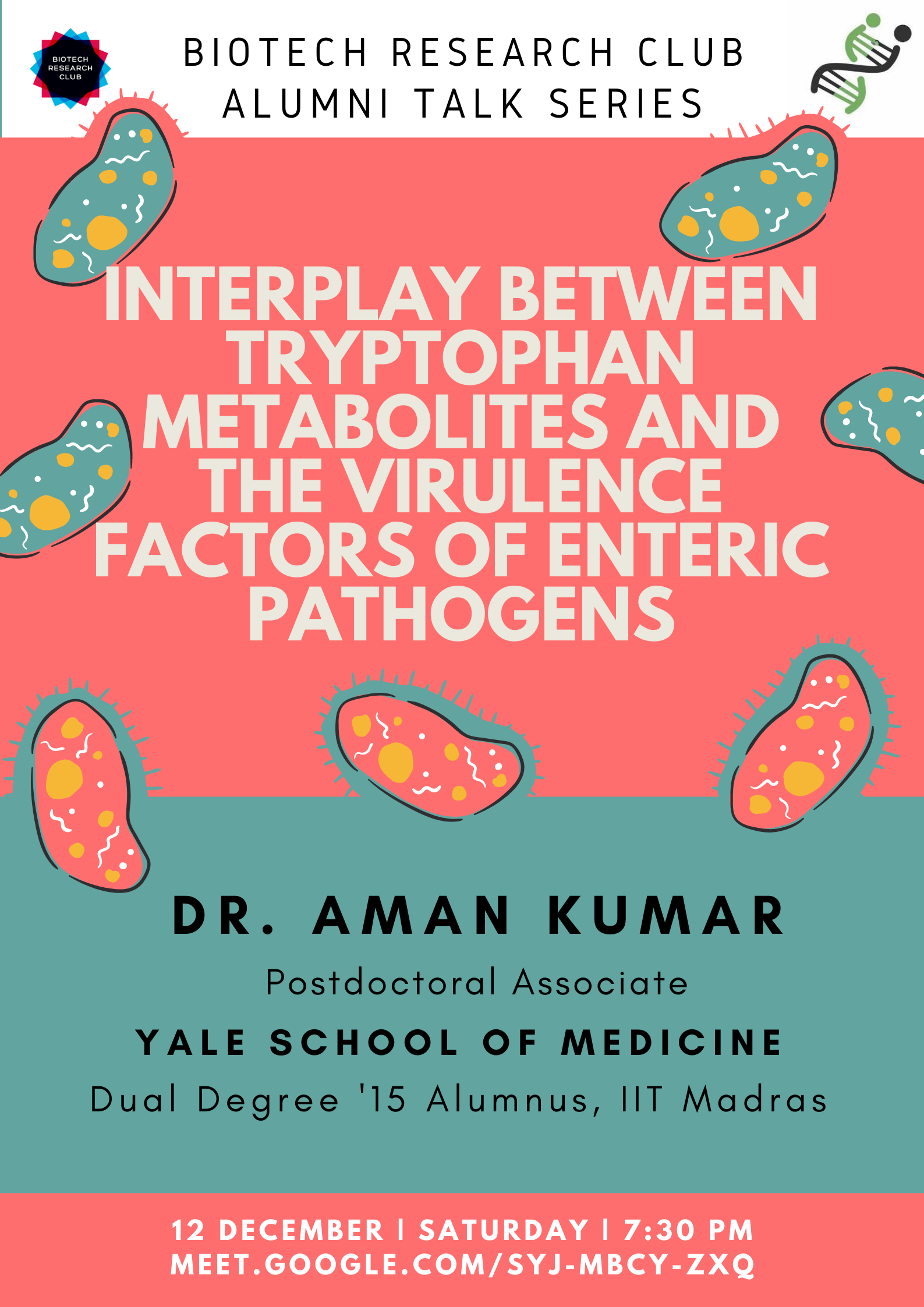Interplay between tryptophan metabolites and the virulence factors of enteric pathogens

Abstract
Microbial establishment within the gastrointestinal (GI) tract requires surveillance of the gut biogeography. The gut microbiota coordinates behaviors by sensing host- or microbiota-derived signals. Here we show that the tryptophan derivatives including the microbiota-derived indole and the host-derived serotonin decreases the virulence of enteric pathogens. We utilized C. rodentium (a mouse-specific model pathogen) to understand the dynamics of host-pathogen-microbiome interactions and show that both indole and serotonin decrease the expression of virulence-related genes in C . rodentium. Mechanistically, we also identified the bacterial membrane bound histidine kinase CpxA as an indole and serotonin sensor. Taken together, our data indicate that bacterial pathogen senses the gut info-chemicals to establish a successful infection.
Biography of the speaker
Dr. Aman Kumar graduated from IIT Madras in 2015 with a B.Tech + M.Tech in Biotechnology and went on to do a Ph.D. at the University of Texas Southwestern Medical Center, where he worked on host-pathogen-commensal interactions in the human gut in the lab of Prof. Vanessa Sperandio. He is currently a postdoctoral research associate in the lab of Prof. Andrew Goodman at the Yale School of Medicine.